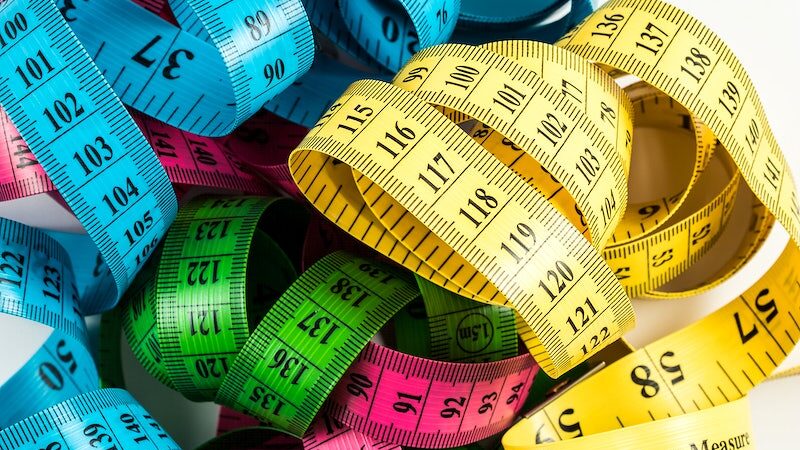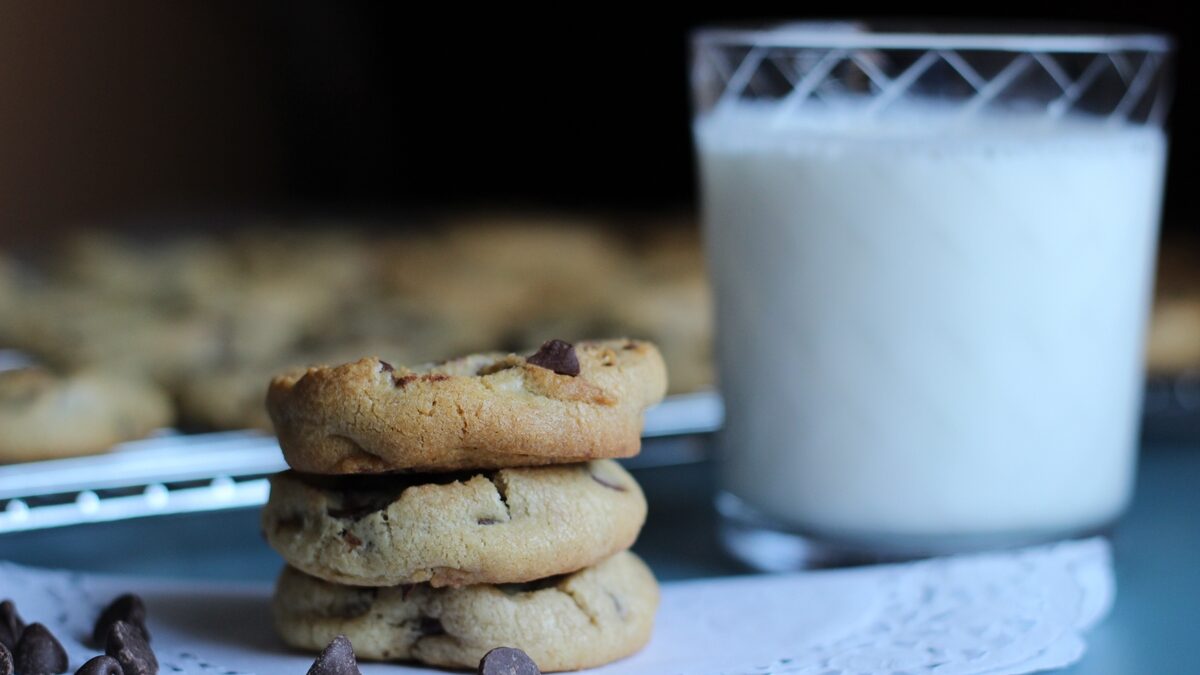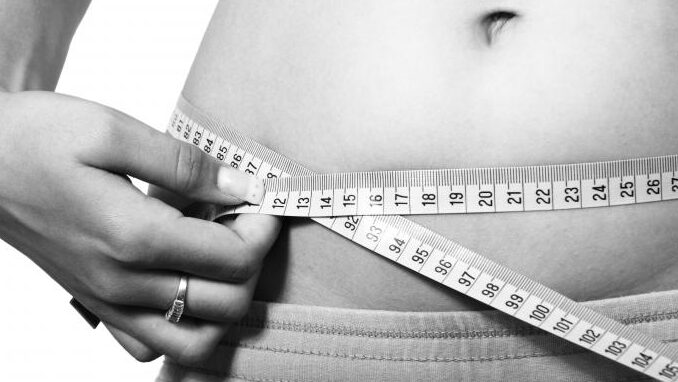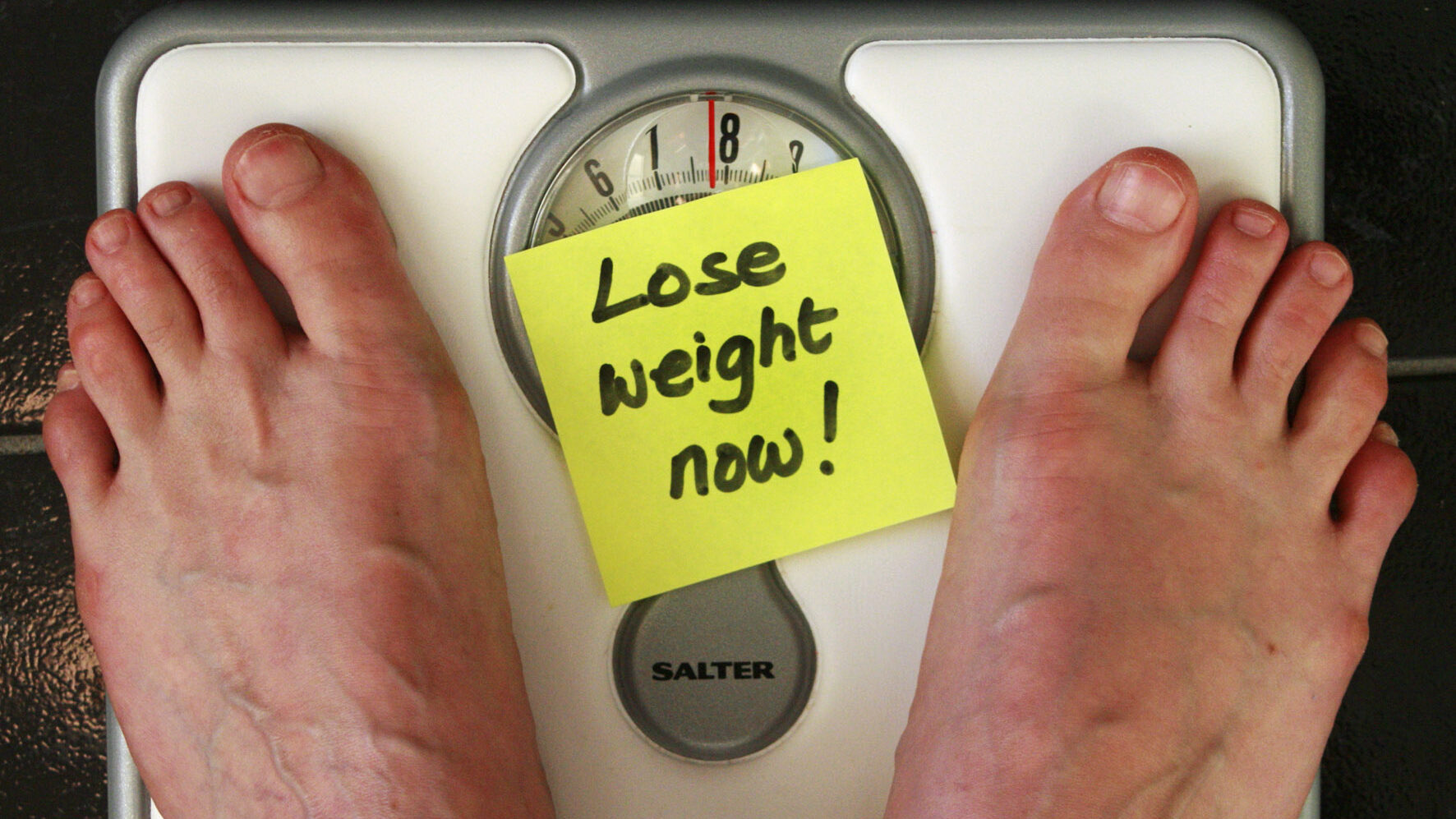
Losing weight can be a difficult and frustrating journey, but it doesn’t have to be. Along the way, I’ve discovered a few life hacks that have helped me stay on track and make my weight loss journey a little bit easier. In this post, I’ll share my top three life hacks for losing weight, and how they’ve helped me in my own journey.
Hack #1: Make meal prep a fun and social activity
Meal prep can be a tedious and time-consuming task, but it doesn’t have to be. I’ve found that making meal prep a fun and social activity can make it a lot more enjoyable. Try inviting a friend or family member over to prep meals with you, or make it a competition to see who can come up with the most creative and healthy meal. Not only will you get your meals prepped for the week, but you’ll also have fun and socialize at the same time.
Hack #2: Use a water bottle with measurements on it
Drinking water is essential for weight loss, but it can be difficult to know how much water you’re actually consuming. I found a water bottle with measurements on it and it made it a lot easier to track my water intake. You can set a goal for yourself, like drinking a certain amount of water per day or week, and then track your progress. This way, you’ll know if you’re on track or if you need to drink more water.
Hack #3: Make a “non-scale victory” list.
One of the biggest mistakes people make when trying to lose weight is focusing too much on the number on the scale. But weight loss isn’t just about pounds; it’s also about inches, body composition, energy levels, and overall health. So I started making a list of all the “non-scale victories” I was experiencing, like fitting into a smaller size, having more energy, or feeling better in my clothes. Seeing these progress markers helped me stay motivated and remember that weight loss is about so much more than a number.
Hack #4: Be consistent.
It’s often the small things that you do consistently over time that will get you to your goal. I made sure I was consistent with my exercise routine and my food choices. I put my workout clothes on as soon as I woke up and made sure to have a healthy breakfast. I also made sure I had healthy snacks readily available so when I got hungry I wouldn’t grab for the junk food.
Hack #5: Prioritize sleep.
It is important to get enough sleep for your body to recover and recharge. Lack of sleep can lead to overeating and weight gain. I made sure to get 7-8 hours of sleep every night and I also made sure to avoid caffeine, nicotine and alcohol close to bedtime. I also try to relax and unwind before I go to sleep by reading a book or listening to soothing music.
Try these hacks out for yourself and see how they work for you. Remember, weight loss is a journey and it is not always easy, but with the right mindset and tools, it is possible to achieve your goals.

It’s important to be mindful of the information we come across when trying to lose weight. There are many myths and misconceptions out there that can be misleading and even harmful. By understanding the facts, we can make informed decisions about our health and set ourselves up for success.
Eating less than 1000 calories a day will speed up weight loss: In reality, drastically reducing your calorie intake can slow down your metabolism and make it harder to lose weight. It’s important to find a balance that works for you and to not restrict yourself too much.
Carbohydrates make you gain weight: Carbs are an important source of energy and not all carbs are created equal. Whole grains, fruits, and vegetables are all healthy sources of carbohydrates. It’s important to focus on nutrient-dense foods rather than avoiding a certain macronutrient.
Detox teas, wraps, and supplements will detox your body and help you lose weight: Your body has its own natural detox system, and these products are not only unnecessary but can also be dangerous. There’s no such thing as a quick fix or magic solution for weight loss.
Skipping meals will help you lose weight: Skipping meals can actually lead to overeating later on and can slow down your metabolism. It’s important to eat regular, balanced meals to keep your energy levels stable.
You need to workout for hours every day to see results: While it’s important to be active, you don’t need to spend hours in the gym to see results. High-intensity interval training (HIIT) and resistance training are both effective and efficient ways to exercise.
Spot reduction is possible: Doing exercises for a specific body part will not help you lose fat in that area. The only way to lose fat is through overall weight loss through a combination of exercise and diet.
You need to eat special diet foods to lose weight: Eating special diet foods can be expensive and often lack the nutrients your body needs. It’s important to focus on eating a balanced diet with plenty of fruits, vegetables, whole grains, and lean proteins.
You need to avoid all fats to lose weight: Not all fats are bad for you. In fact, healthy fats like olive oil, avocados, and nuts are important for weight loss and overall health. It’s important to focus on eating healthy fats in moderation.
You need to eat a lot of protein to lose weight: While protein is an important macronutrient, it’s not necessary to eat excessive amounts. Eating too much protein can be hard on your kidneys and also lead to weight gain.
You can only lose weight if you are 100% perfect: It’s not possible or healthy to be perfect all the time. It’s important to be kind to yourself and not to give up on your goals if you slip up. Weight loss is a journey, not a destination.
Eating late at night will make you gain weight: This is a common myth, but the timing of your meals doesn’t affect weight loss or gain. What matters is the total number of calories consumed throughout the day. Eating late at night may lead to overeating, but it’s not the timing that causes weight gain.
Crash diets and juice cleanses are effective for long-term weight loss: Crash diets and juice cleanses may help you lose weight quickly, but they’re not sustainable in the long-term. These types of diets are often restrictive and lack essential nutrients, making it difficult to stick to them. Plus, the weight loss is often temporary, and people tend to gain the weight back once they go back to their normal eating habits.
Low-fat or fat-free products are always healthier options: Many low-fat or fat-free products are high in added sugar and calories. Just because a product is low in fat, it doesn’t mean it’s healthy. It’s important to check the nutrition label and ingredients list to see what’s really in the product.
You should aim to lose weight quickly: Rapid weight loss is not always healthy or sustainable. Losing weight too quickly can lead to muscle loss, nutrient deficiencies, and other health problems. It’s important to aim for a healthy rate of weight loss, which is typically 1-2 pounds per week.
Remember that weight loss is a journey, and it’s important to be kind to ourselves and not to compare ourselves to others. Each person’s body is different and will respond differently to different methods. The key is to find what works for you and to be consistent with it. Remember to focus on making sustainable lifestyle changes and to be patient with yourself. With the right mindset, support and the right tools, you can achieve your weight loss goals and improve your overall health.

A few days ago an old friend of mine messaged me as asked “Hey, so what’s going on with the diet thing?” and I have not replied. Mainly because I am really not doing anything diet related, haven’t been for some time. Do I need to focus on my weight and health? Of course I do! Am I focusing on my weight and health? Heck NO!
So here I am, finally facing the reality that I need to focus on my weight and health again. It’s not easy admitting that I’ve been slacking and not following through with my own advice, but it’s important to be honest with myself and with all of you. While I have been focusing on this blog I have not been “practicing what I preach” and I guess that is hypocritical. So I am posting this to have full transparency and accountability. The message from my old friend was a wake-up call, and I’m grateful for the reminder that it’s time to get back on track. I know that this journey won’t be easy, but I’m ready to take it on. I’m ready to take control of my emotional eating habits and find healthier ways to cope with my emotions. I’m ready to make a real change, and I hope I can inspire others to do the same. So here’s to a new beginning, to focusing on my weight and health, and to finally winning the battle against emotional eating.
I have been floundering at my current weight (give or take 20 pounds) for many years. I get motivated for very short periods and I let the emotional eater take over. If I’m sad, stressed, anxious and sometimes even happy I tend to eat for comfort. I’m sure there are SO many reasons that I could blame that on, but truthfully I choose to eat in those situations. It has been a lifelong battle that (other than a short period when I was in my late teens/early 20’s) its a battle that have been losing.
I can easily blame my upbringing for my being fat. My mom especially attaches food to everything, even at 91 years old it’s still happening. Every holiday has a ‘tradition’ that is always food related. I don’t mean like Thanksgiving dinner or an Easter ham, I am talking more about a specific Macaroni Salad that is ‘tradition’ to eat on new years day along with ham and swill on rye. Every year that is what we have .I’m also talking about each family vacation or any trip, part of that planning revolved around where we would eat. A trip up north? We get to eat at “Emil Vilas”. Vegas? The Hilton buffet! Visit my grandparents it was either “The Farm House| or the Chinese place (or both). There were many dishes, mostly sweets, that were the ‘tradition’ at certain times of the year like home made ice cream sandwiches that would be ice cream sandwiched between 2 home made brownies. They were made in bulk at the start of the summer and in the freezer for an instant snack. When I got home from elementary school I always had a bag of Chips Ahoy cookies and a half gallon of milk… That was comforting to me.
As I said, I can easily blame my mom and my upbringing for my obesity, but I really can’t. I and 59 years old and mom hasn’t been involved in what I eat for over 35 years. In that time (and before) I have understood weight gain and loss, the value of exercise, how detrimental being unfit can be to your body, mental health and life span. Yet I still am fat. No one has forced me to over eat, to eat huge portions, to eat sugary treats, not one time has anyone held a gun to head and said “Order the milkshake!” This is all self inflicted.
I quit smoking about 25 years ago. I was smoking 2 1/2 packs a day and had tried to wean off and quit several times before. When I finally quit it was cold turkey, it was difficult and I knew that if I had even one hit from a cigarette I would be smoking 2+ packs a day in no time. So I have avoided that completely. I have often thought (and said) that if you could just quit food cold turkey and never have to take a single bite again that I would be successful in getting and staying thin by just avoiding food all together. and as unrealistic as that is, I do believe that would work for me.
But, truth is, I do have to eat at times so its more about what I eat, how much I eat and when I eat that matters. I had a doctor for many years who had obviously never had a weight issue. I know this becaue he would bring up my weight and then say “Losing weight is very simple. You just have to burn more calories that you intake” Obviously this was not some ground breaking news to me but to him there was no issue with just doing that and dropping all the weight I have been carrying for years. I have tried so many diets, so many modifications to my lifestyle, researched and planned so many times and so far nothing has ‘stuck’… so far.
Which brings me to motivation, frame of mind, desire and goals. I do not feel motivated right now and am not in a positive frame of mind. I have let life run me over and take control of all of that. Depression and ambivalence are overwhelming at times. While I am actively working on these mental health issues, I am not doing anything to directly improve my weight or health.
I have been in this spot so, so many times and sometimes I can get motivated, lose weight, get some exercise. But it is almost always short lived. In a perfect world I would have the money to hire a healthy chef who would shop for and prepare each meal and snack. I would have a trainer available to motivate me and help me be more active. But I am on my own on this. I do most of the shopping and cooking in the home. and I am to blame for the junk snacks and the high calorie meals. I need to think outside the box and not do the same old thing again.
- Motivation: I have had the same motivation before. Wanting to not hurt. Wanting to be able to do active things and not moan and grown just standing from the couch. I don’t want 10 people to have to try to lift my body to be cremated after I die. I want to be around for my family and see them grow and achieve all sorts of things. I don’t want to be seen as that fat guy anymore.
- Frame of Mind: I have always believed that 99% of being successful in this is frame of mind. Once in my life I have had the right mindset to loose weight and get healthy. That was when I was 18-19 years old. The catalyst then was a girl… actually any girl… I was lonely and on Valentines day 1982 I decided I was not going to be lonely next Valentines Day. That focus and desire and goal translated to a major change in my diet and my activity. For the next year I worked out every night and I ran every night no matter what. I started out with a not so healthy diet and after a month and 32 pounds lost I felt weak, I felt tired. So I started a much smarter diet and on Valentines Day 1983 I was still just as lonely, but I weighed 73 pounds less and was just about at my goal weight. I was now running 5-7 miles a day. I was able to do pull ups for the first time in my life. and I was much more confident. I maintained that level of focus even when my exercising became less frequent. I was able to keep that weight off for about 2 1/2 years. That being said, I don’t realistically see myself at that level now, but I need to have enough focus to control my caloric intake and increase my current activity level and I need to keep that focus.
- Desire: I touched on this above but basically I desire to be a ‘normal’ weight. For me that is about 235 pounds (roughly 150 pounds les than I do now). I desire to be able to go and do stuff I enjoyed in the past. Bowling is a huge desire of mine, but my knee hurts under this weight. I desire being able to buy clothes at ‘normal’ stores and not have to order 5X sizes. I desire to not get exerted doing ;normal; things… climbing a flight of stairs, taking clothes to the washer, pushing my 3 year old on the swings.
- Goals: I have had a weight goal of 218 for many years. While I thing I would be fine at 235, 218 has remained the goal. When I lost the weight at age 19 I got to a low of 198 and that was not good for me. so my long term weight goal is a realistic 235 . But that seems too unsurmountable, too hard. So I need to break this goal into smaller goal milestones and assign target dates (On of my favorite quotes is ‘A goal without a date is just a dream’) There will be another post soon with my detailed goals. Other goals I will set involve NSV’s (Non Scale Victories). These are things that you can see or do that are not related to your exact weight, such as being able to get up and down from sitting easily or to fit in a certain shirt. In addition I will create some goals directly related to my health, reducing my blood pressure, having pain free knees, etc.
So this is my plan. I will be posting from time to time but the main focus of this site will remain to provide motivational tip to help others with their weight and health.

Starting a weight loss journey can be a daunting task, but one of the best ways to stay on track and achieve your goals is to create a weight loss journal. A journal is a great tool for tracking your progress, identifying patterns, and staying motivated.
Making your weight loss journal your own is an important step in achieving your goals. Your journal should be tailored to your specific needs and preferences, so feel free to add or remove elements as you see fit. Some things you might want to include are:
- Daily food and exercise logs
- Meal and workout plans
- Progress tracking (such as measurements or photos)
- Gratitude and motivation prompts
- Mindful eating exercises
- Reflective prompts
- Inspirational quotes or affirmations
On the other hand, you should also feel free to skip elements that don’t help you. If you find that tracking your food and exercise logs is too time-consuming, or that you don’t find it helpful, you can skip it. The most important thing is to create a journal that works for you and that you will enjoy using. Remember that the most important aspect is to make it personal and keep it simple, so you can use it consistently.
Here are some suggestions instructions on how to create a weight loss journal that will help you reach your goals.
Step 1: Gather Supplies
First, gather all the supplies you’ll need to create your journal. This can include a notebook or journal, pen or pencil, and any other materials that you find helpful, such as a ruler, stickers, or colored pens. You may also want to consider investing in a digital journal or an app that allows you to track your progress and set reminders.
Step 2: Set Your Goals
Before you begin tracking your progress, it’s important to set your weight loss goals. Make sure they are specific, measurable, attainable, relevant, and time-bound (SMART). Write your goals in your journal and include the date you want to achieve them by.
Step 3: Track Your Progress
Now that you have your goals set, it’s time to start tracking your progress. Use your journal to record your weight, measurements, and other important data such as calories consumed, water intake and exercise routine. This will help you identify patterns and make adjustments to your diet and exercise routine as needed.
Step 4: Reflect on Your Progress
Take some time every day or week to reflect on your progress. Look back at your journal and see how far you’ve come. Take note of what’s working and what’s not. This will help you stay motivated and make any necessary adjustments to your weight loss plan.
Step 5: Incorporate other helpful tools
Consider adding other useful tools to your journal to help you on your weight loss journey, such as a food diary, a mood journal, a gratitude journal and a workout log to track your progress and help you stay on track.
Step 6: Write Down Your Motivations
In addition to tracking your progress, it’s also important to write down your motivations for losing weight. This could be a specific event or milestone, a health concern, or a desire to improve your self-esteem. Write down your motivations in your journal and refer to them often to keep yourself motivated and on track. Use your journal to write down positive affirmations, inspiring quotes, and accomplishments. This will help you stay motivated and remind you of why you started your weight loss journey in the first place.
Step 7: Create a Meal Plan
Creating a meal plan is a great way to stay on track with your weight loss goals. Use your journal to plan out your meals for the week, including snacks and drinks. This will help you stay organized and make healthier choices. Make sure to include a variety of fruits, vegetables, lean proteins, and whole grains in your meals.
Step 8: Make a Workout Plan
Just like with meal planning, creating a workout plan can help you stay on track with your weight loss goals. Use your journal to plan out your workouts for the week, including the type of exercise, duration, and intensity. Make sure to include a variety of cardio, strength training, and flexibility exercises to keep your body challenged and prevent boredom.
Step 9: Reflect and Adjust
Losing weight is not always easy, and it’s important to stay positive throughout the process. It’s important to regularly reflect on your progress and make adjustments as needed. Use your journal to evaluate your progress and identify areas where you need to make changes. If you’re not seeing the results you want, adjust your diet and exercise plan accordingly.
Step 10: Practice Mindful Eating
Mindful eating is the practice of being present and fully engaged in the act of eating. It means paying attention to the flavors, textures, and smells of your food, as well as your body’s hunger and fullness signals. Use your journal to record your thoughts and feelings while eating, and make a note of any distractions or triggers that may have led to overeating. Practicing mindful eating can help you make healthier food choices and improve your overall relationship with food.
Step 11: Incorporate Gratitude
Gratitude is a powerful tool that can help boost your mood, reduce stress, and improve your overall well-being. Incorporate gratitude into your weight loss journey by taking some time each day to reflect on the things you’re grateful for. Use your journal to write down at least one thing you’re thankful for each day. This can be something as simple as a beautiful sunset or a kind act from a stranger. Reflecting on the positive things in your life can help keep things in perspective and remind you of the good things you have.
Step 12: Don’t Give Up
Losing weight is not always easy, and it’s important to remember that setbacks are a normal part of the process. Use your journal to track your progress and reflect on your journey. If you have a setback, don’t give up. Instead, use it as an opportunity to learn and make adjustments to your plan. Remember that weight loss is a journey, not a destination, and it’s important to be kind to yourself and celebrate small victories along the way.
Overall, a weight loss journal is a powerful tool that can help you stay motivated, track your progress, and make adjustments to your diet and exercise plan. By following these steps and incorporating different tools, you can create a journal that will help you achieve your weight loss goals. Remember to stay positive, and don’t be too hard on yourself if you have a setback. Every journey has its ups and downs, but with a journal and a plan, you can achieve your goals and become the best version of yourself.
Starting a weight loss journal is a simple and effective way to stay on track with your weight loss goals. By setting goals, tracking your progress, reflecting on your journey, and incorporating other helpful tools, you can create a journal that will support you every step of the way. Remember to be kind and compassionate with yourself, and celebrate your progress and achievements no matter how small they may be.
As an Amazon Associate I earn from qualifying purchases.

Negativity and self-sabotage can be major roadblocks on any weight loss journey. Whether it’s negative self-talk, comparison to others, or external triggers, it can be difficult to stay motivated and on track. Here are some real-world examples of triggers that can derail your fitness journey and strategies for fighting negativity and undermining:
- Negative self-talk: Negative self-talk is one of the most common triggers of negativity and self-sabotage. Examples of negative self-talk include phrases such as “I’ll never be able to lose weight” or “I’ll always be the fat one.” To fight negative self-talk, try to identify the triggers that lead to negative thoughts and replace them with positive affirmations.
- Comparison to others: Social media and the constant exposure to images of “perfect” bodies can lead to feelings of inadequacy and comparison to others. To fight comparison to others, try to focus on your own progress and accomplishments, and remind yourself that everyone’s journey is different.
- Emotional eating: Emotional eating is a common trigger for self-sabotage. Stress, boredom, or feelings of hopelessness can lead to overeating or making unhealthy food choices. To fight emotional eating, try to identify the triggers that lead to emotional eating and find healthier ways to cope, such as exercise or journaling.
- Lack of support: Feeling unsupported by friends and family can be a major trigger for negativity and self-sabotage. To fight feelings of lack of support, try to build a support system of friends and family who understand and support your journey, and also seek out online communities or professional help if needed.
- Unrealistic expectations: Setting unrealistic expectations for weight loss can lead to disappointment and self-sabotage. To fight unrealistic expectations, try to set realistic and achievable goals, and focus on progress rather than perfection.
In conclusion, negativity and self-sabotage can be major roadblocks on any weight loss journey, but they don’t have to be. By being aware of the triggers that can lead to negativity and self-sabotage, and using strategies to fight them, you can stay motivated and on track to achieving your weight loss goals. Remember to focus on progress, be kind to yourself and seek help when needed.

Weight loss and fitness journeys can be challenging and emotional, and achieving success in these areas can be incredibly rewarding. However, weight loss success is not the only type of success in life, and it’s important to understand the differences between weight loss success and other successes.
One major difference between weight loss success and other successes is the level of external validation. Weight loss success is often measured by numbers on a scale or the size of your clothes, and these measurements can be influenced by external factors such as water weight or muscle gain. On the other hand, other successes in life, such as career achievements or personal relationships, are not as easily quantifiable and are often based on internal validation.
Another difference is the level of permanency. Weight loss success is often seen as temporary, as the weight can be regained if the habits that led to the weight loss are not maintained. On the other hand, other successes in life, such as building a fulfilling career or a strong personal relationship, are more permanent and have a longer-lasting impact.
It’s also important to note that weight loss success is just one aspect of overall health and well-being. While losing weight can improve physical health and reduce the risk of chronic diseases, it’s not the only measure of success or happiness. Other aspects of health and well-being, such as mental health, relationships, and personal fulfillment, are just as important and should not be overlooked.
In conclusion, weight loss success is an important and rewarding accomplishment, but it should not be the only measure of success in life. It’s important to remember that weight loss success is temporary, easily quantifiable and can be influenced by external factors. On the other hand, other successes in life, such as career achievements or personal relationships, are more permanent, not easily quantifiable, and based on internal validation. Additionally, weight loss success is just one aspect of overall health and well-being, and it’s important to focus on all aspects of health and well-being in order to live a fulfilling and happy life.

Setting goals is an important part of any weight loss and fitness journey. However, it’s important to set goals that are both positive and realistic. Unrealistic goals can set you up for disappointment, while positive goals can help you stay motivated and on track. Here’s a step-by-step guide for setting realistic and positive weight loss and fitness goals:
Step 1: Define your “why”
Before setting any goals, it’s important to understand your reasons for wanting to lose weight and get fit. Your “why” should be something that is meaningful and motivating to you. For example, if you want to lose weight to improve your health and reduce your risk of chronic diseases, make sure that this is at the forefront of your mind.
SMART goals are Specific, Measurable, Achievable, Relevant and Time-bound. This means that your goals should be specific, measurable, achievable, relevant and have a deadline. Instead of setting a goal to “lose weight”, set a specific goal like “lose 10 pounds in 3 months”
Step 3: Make a plan
Once you have set your goals, it’s important to make a plan for how you’re going to achieve them. This might include things like creating a meal plan, scheduling exercise sessions, or finding a workout buddy. Be as specific as possible and include small, actionable steps that you can take to reach your goals.
Step 4: Track your progress
Tracking your progress is important for staying motivated and on track. Keep a journal or use an app to track your weight, measurements, and any other relevant details. Also, keep track of your exercise and nutrition. This will help you to see how far you’ve come and stay motivated.
Step 5: Be flexible
Life happens and plans change. Be flexible and adapt your plan as needed. If you hit a setback, don’t give up. Reflect on what went wrong and find ways to move forward.
Step 6: Celebrate successes
It’s important to celebrate your successes, no matter how small they may be. Recognize your achievements and reward yourself in a way that feels good to you.
Step 7: Reflect and adjust
Regularly review your progress and use the information you’ve gathered to make adjustments to your plan. Reflect on what worked and what didn’t work and make necessary changes.
In conclusion, setting realistic and positive weight loss and fitness goals is an important part of any weight loss and fitness journey. By following the steps outlined above, you can ensure that your goals are specific, measurable, achievable, relevant and have a deadline. Additionally, it’s important to make a plan, track your progress, be flexible, celebrate your successes, and reflect and adjust as needed. Remember to keep your “why” in mind, and stay focused on your goals. Also, don’t be afraid to seek help from a professional if needed, a coach, a nutritionist or a therapist can help you to stay on track and reach your goals. With a positive attitude, a solid plan, and a commitment to your goals, you can achieve anything.

Losing weight can be a challenging and emotional journey, and it’s not uncommon for people to struggle with their self-esteem along the way. It’s important to remember that weight loss is not just about shedding pounds, it’s also about building a healthy relationship with your body and learning to love and accept yourself as you are. Here are some practical tips and advice for building self-esteem and confidence while losing weight:
- Focus on progress, not perfection. It’s easy to get caught up in the numbers on the scale or the size of your clothes, but it’s important to remember that weight loss is not a linear process. Celebrate your progress, no matter how small it may be, and focus on the positive changes that you’re making in your life.
- Practice self-compassion. Be kind to yourself and give yourself grace when you make mistakes. Remember that you’re human and that it’s normal to have setbacks and slip-ups. Instead of beating yourself up, focus on what you can learn from the experience and how you can do better next time.
- Surround yourself with positive people. The people in your life can have a big impact on your self-esteem and confidence. Surround yourself with people who support and encourage you, and avoid those who bring you down.
- Get moving and find activities that you enjoy. Exercise is not only good for your physical health, but it can also boost your self-esteem and confidence. Find activities that you enjoy, such as dancing, swimming, or hiking, and make them a regular part of your routine.
- Learn to appreciate your body. Instead of focusing on what you don’t like about your body, take the time to appreciate what it can do. Your body is strong, resilient, and capable of amazing things.
- Speak kindly to yourself. Our internal dialogue can have a big impact on our self-esteem and confidence. Make a conscious effort to speak kindly to yourself and avoid negative self-talk. Replace negative thoughts with positive affirmations and remind yourself of your strengths and accomplishments.
- Don’t compare yourself to others. It’s easy to get caught up in comparing ourselves to others, especially when it comes to weight loss. But, everyone’s journey is different, and it’s important to focus on your own progress and not compare yourself to others.
- Find a supportive community. Joining a weight loss support group or online community can be incredibly helpful for building self-esteem and confidence. Surrounding yourself with people who understand and support your journey can provide a sense of belonging and validation.
- Incorporate self-care practices into your routine. Self-care is an important aspect of overall well-being and can have a positive impact on self-esteem and confidence. Make time for activities that make you feel good, such as reading, taking a bath, or practicing yoga.
- Remember that weight loss is not the only measure of success. Weight loss is not the only measure of success and it’s important to remember that health and happiness are much more important. Focus on how you feel and how your body is changing instead of just the number on the scale.
In conclusion, weight loss is not just about shedding pounds, it’s also about building a healthy relationship with your body and learning to love and accept yourself as you are. By focusing on progress, practicing self-compassion, surrounding yourself with positive people, getting moving, learning to appreciate your body, speaking kindly to yourself, avoiding comparison, finding a supportive community, incorporating self-care practices, and remembering that weight loss is not the only measure of success, you can boost your self-esteem and confidence and achieve your weight loss goals.

Losing weight can be challenging at any age, but as we get older, our bodies change and it can become more difficult to achieve our weight loss goals. However, that doesn’t mean it’s impossible. With the right approach, you can overcome the challenges and succeed in your weight loss journey.
One of the main challenges that seniors face when trying to lose weight is a slower metabolism. As we age, our bodies burn fewer calories, making it harder to lose weight. However, there are ways to boost your metabolism. Regular exercise, such as strength training, can help to build muscle mass, which in turn can increase your metabolism. Eating a balanced diet with plenty of protein and healthy fats can also help to boost your metabolism.
Another challenge that seniors face is a lack of mobility and energy. As we get older, our joints and muscles can become stiff, making it difficult to exercise. However, there are many low-impact exercises that can help to increase your mobility and energy. Walking, swimming, cycling, and yoga are all great options that can help to improve your fitness level.
A third challenge is dealing with chronic conditions such as diabetes, high blood pressure, and other medical conditions that make it harder to lose weight. However, it’s important to work with your doctor to find a weight loss plan that’s safe and appropriate for you. It’s also important to make sure that you’re getting the right nutrients to support your health and well-being.
One important thing to keep in mind is to set realistic goals. It’s important to remember that weight loss is a slow process and to not get discouraged. Set small and achievable goals, like losing 5-10% of your body weight. Also, it is important to measure progress in other ways, such as by measuring your waist circumference, body fat percentage, and how your clothes fit.
In conclusion, weight loss can be challenging for seniors, but it’s not impossible. By boosting your metabolism, increasing your mobility, and setting realistic goals, you can overcome the challenges and succeed in your weight loss journey. Remember, it’s important to work with your doctor and make sure that your weight loss plan is safe and appropriate for your individual needs.

If you’re trying to lose weight, you may find that journaling can be a helpful tool for staying on track and achieving your goals. From tracking your progress to reflecting on your experiences, journaling can help you stay motivated and make healthy choices. Here’s a step-by-step guide for using journaling to support your weight loss journey:
Step 1: Set your weight loss goals
Before you start journaling, it’s important to have a clear idea of what you want to achieve. Write down your weight loss goals and why they are important to you. Be specific and set achievable targets.
Step 2: Track your progress
Use your journal to track your progress on a regular basis. Record your weight, measurements, and any other relevant details. Also, keep track of your exercise and nutrition. This will help you to see how far you’ve come and stay motivated.
Step 3: Reflect on your experiences
Journaling is also a great way to reflect on your experiences. Write down any challenges you’ve faced, the things you’ve learned, and any successes you’ve had. Reflecting on your experiences can help you to identify areas for improvement and make better choices in the future.
Step 4: Identify triggers
Use your journal to identify any triggers that may lead to emotional eating or other negative behaviors. This can help you to be more aware of these triggers and develop strategies to avoid them.
Step 5: Practice gratitude
Incorporate gratitude into your journaling practice. Each day, write down a few things that you’re grateful for. This will help you to focus on the positive aspects of your life and stay motivated.
Step 6: Review and adjust
Regularly review your journal and use the information you’ve recorded to make adjustments to your weight loss plan. This will help you to stay on track and achieve your goals.
In conclusion, journaling can be an effective tool for weight loss. It allows you to track progress, reflect on experiences, identify triggers, practice gratitude, and make adjustments to your plan. Incorporating journaling into your weight loss journey can help you stay motivated, stay on track and make better choices for your weight loss goals.
Also, I want to suggest reading this page. There is a LOT of information on this subject:
Bullet Journal Ideas for Weight Loss
I created these blank, lined journals with weight loss inspired covers:
As an Amazon Associate I earn from qualifying purchases.